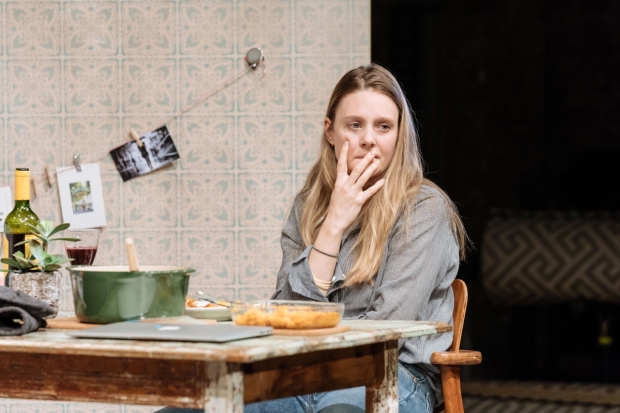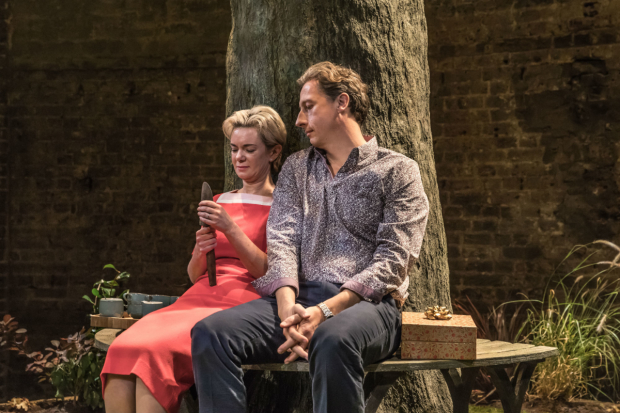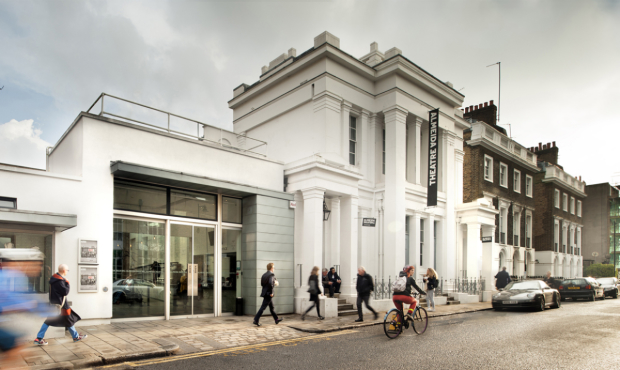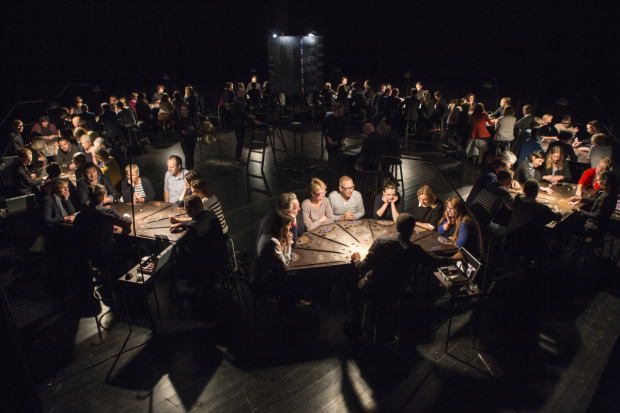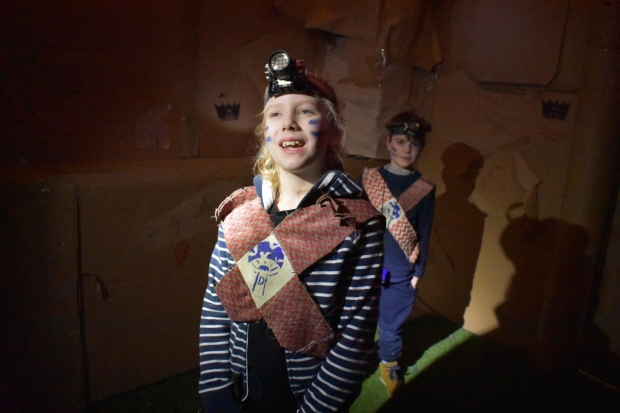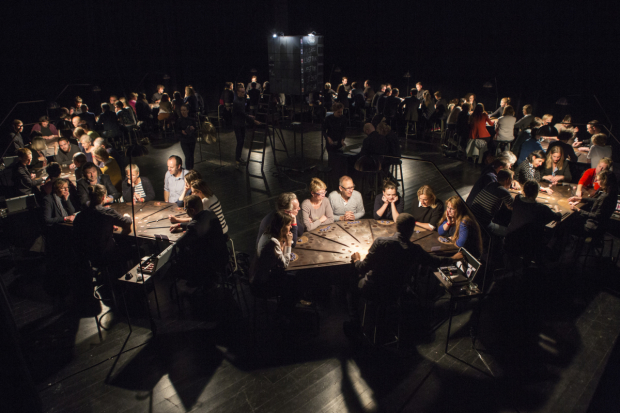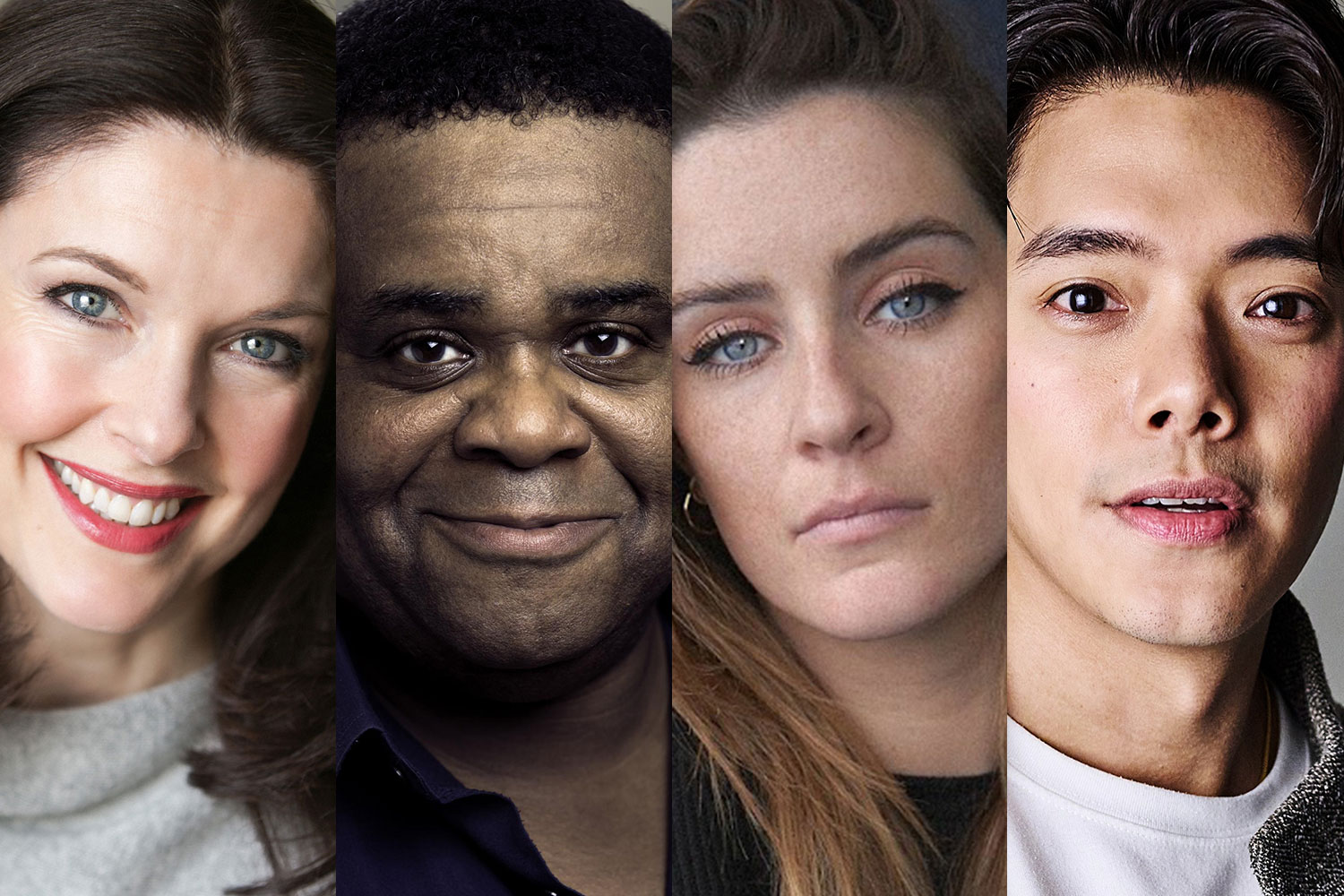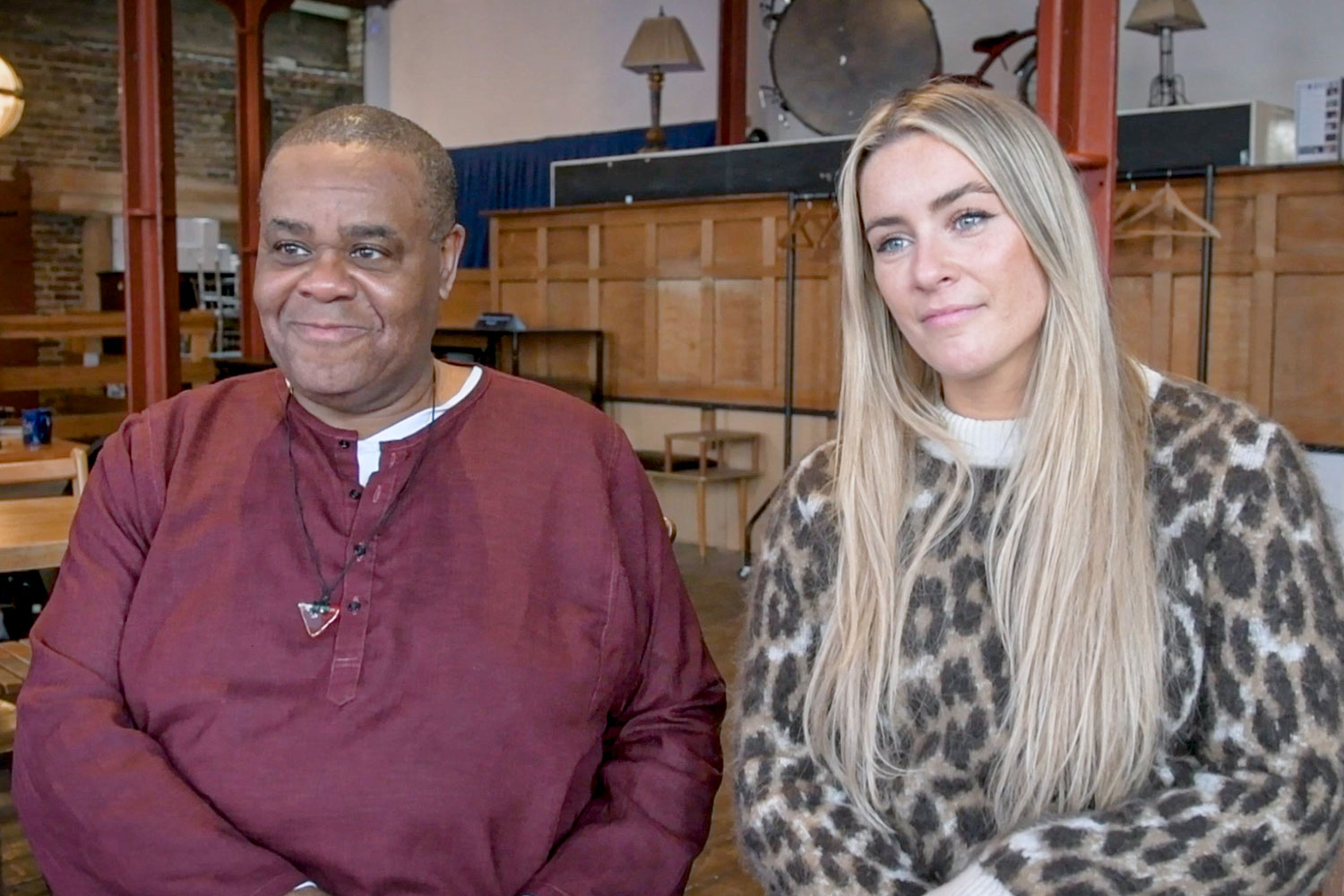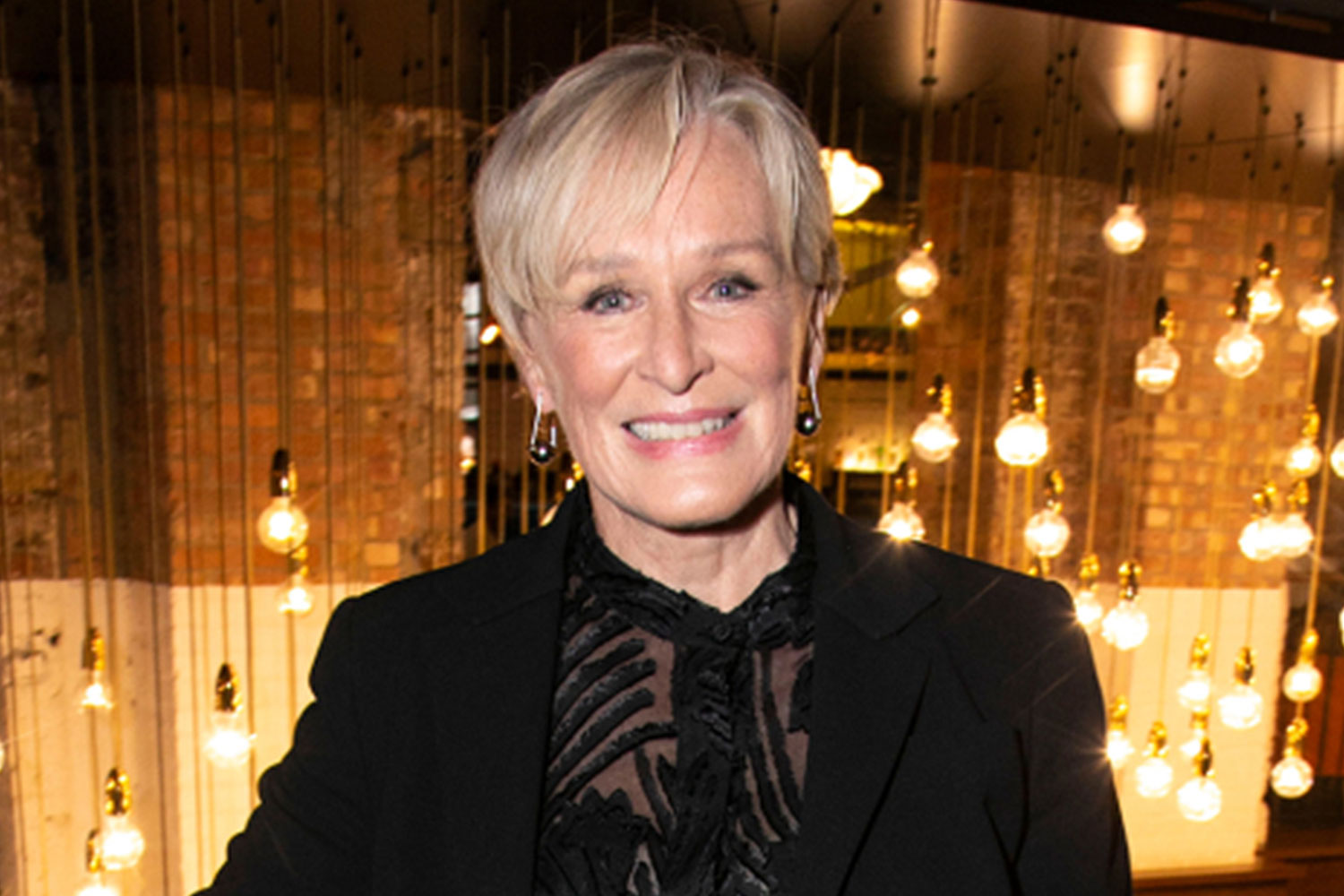Alexander Devriendt: 'Lies puts you in charge of the financial system'
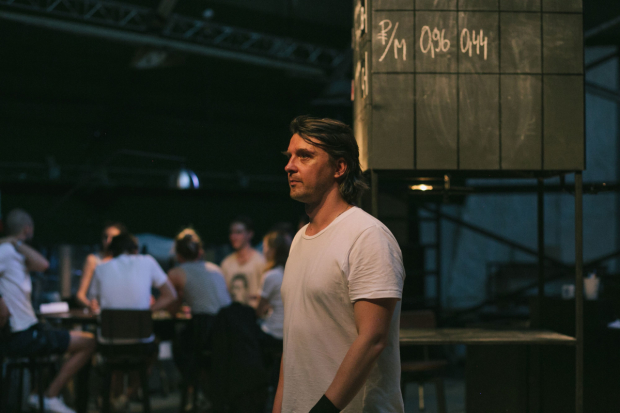
© experiencespace
£¥€$ (LIES) is interactive, how does it work?
You are invited to be a banker. You are seated on a table, and there are several of these tables round the room and you're joined on each table by several other people you don't know – we try to separate people who know each other. Then there is someone we call the Croupier who guides you through the performance and you make decisions. Not everyone joins in, some people want to watch more, which is OK.
Is the idea that the audience has to try to make money?
It's more that we're trying to mirror – a simplified version, of course – the financial system. We're not explaining it to you in words, but putting you in charge of it, because if you do it yourself, you'll understand it more. When it comes to money, 99 per cent of us are usually on the side who watch it and are not in charge of it, which is frustrating sometimes. I wanted to take that away and put you in charge.
The show has been on in several different places, do audiences tend to respond in similar ways?
By now we've done about 100 performances and there's been a good array of possible reactions. We wanted to create this beast that nobody controls. When we watch films like The Big Short, it feels like the people involved knew more than anybody else, but those people were just luckier than anybody else.
Have bankers been to the show?
We've had several bankers from the City, and from Russia, and also from the bank Triodos, a sustainable bank, and the most fascinating thing they said was: 'Yep, that's about it'. I see that as a compliment, of course, but it's also a frightening thing.
Presumably you had to do a lot of research?
Yes, a lot. Since the financial crisis things are more transparent, there are books out there, movies out there, documentaries, there's a lot to learn. I basically needed to simplify it, without losing its reality.
Was the show prompted by the financial crisis?
There are a few reasons we have put it together. I go to casinos about twice a year. I find what they do to me – how they made me greedy and how it feels like a ride – fascinating. I also think there's a feeling that nobody cares anymore about the financial crisis. Or we think everything is OK now. That prompted me to the idea. I am also a board gamer, so I used those principles.
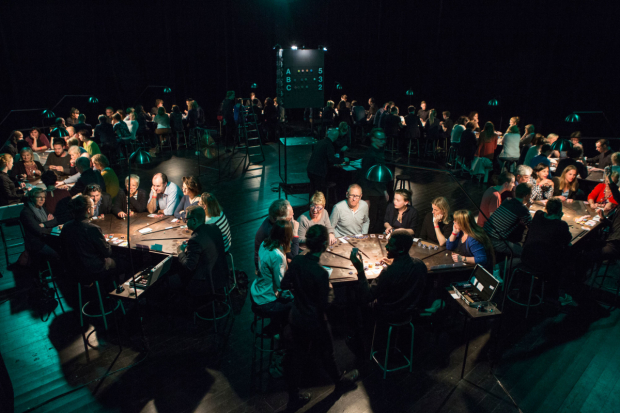
© Thomas Dhanens
So does it feel like a game when you're participating?
In research we found that some bankers played the financial system like a game. People in the system seem to forget what the reality of money is. It's the same when you're in casinos: you only look at the chips, not the cash and that effects your actions.
You founded Ontroerend Goed as a collective – what were your intentions behind putting it together?
We were 17, so I don't know. You just do it, you feel an urge and do it.
Was everyone so young?
Yes, there are new members now of course, but I think four of the founding members are still with us. We were creating poetry and going to arts festivals back then, so it's only after a while and in retrospect that you think about what you're doing and why. I think that's good, because we didn't have time to think, we just did.
When you first came over here, were you surprised at the reaction you got?
We were so overwhelmed and grateful. We first came to Edinburgh in 2007 with The Smile Off Your Face and found a genuine interest in what we were doing. Then with Once and For All it was like we were solidifying that interest. The stir was more lasting.
What are the dynamics of the collective? Is it always you that directs?
No, not in the beginning but after a while it was like: Alex you are better at directing you do it. Generally though we call ourselves a compatible collective. Someone who's really good at one thing does that, and another person who's really good at another thing does that. It's really important the collective is bigger than one name, it means we can go all over the world and it always feels like ours.



